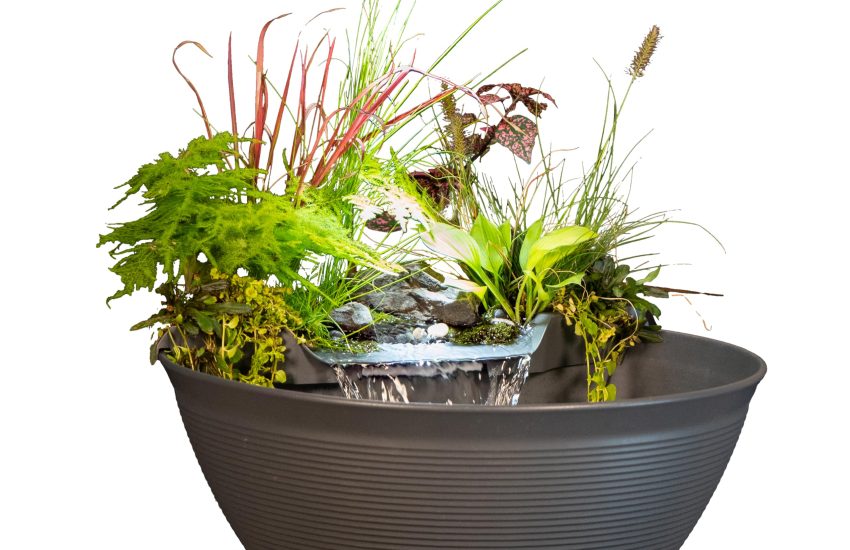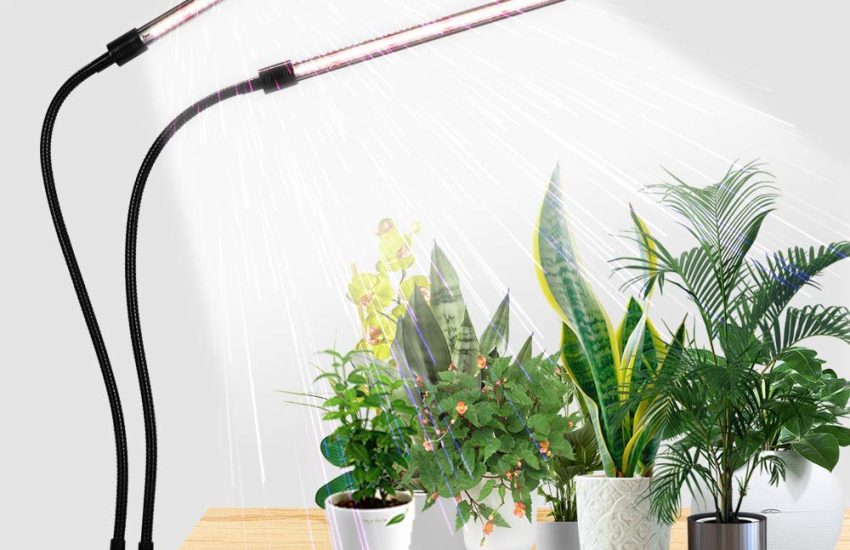Which Soil Testing Kits Give the Most Accurate Results? Top Picks for 2024
We independently select all products and services. If you click through links we provide, Plant Native may earn a commission with no extra cost to you.
Soil testing is an essential practice for gardeners, farmers, and landscapers to optimize plant growth and productivity. By analyzing the chemical composition and nutrient content of soil, these tests provide valuable insights into soil health and fertility.
Soil testing kits offer a convenient and accessible way to assess soil conditions without relying on professional laboratory services.
Accurate soil testing is crucial for making informed decisions about fertilizer applications, pH adjustments, and overall soil management strategies.
Home soil testing kits vary in complexity and accuracy, ranging from simple color-changing strips to more advanced digital meters and chemical reagent sets. The right kit can help users identify deficiencies or excesses in key nutrients like nitrogen, phosphorus, and potassium, as well as measure soil pH levels.
When choosing a soil testing kit, it’s important to consider factors such as the types of tests included, ease of use, and the level of precision required for your specific needs.
We researched and tested numerous soil testing kits to determine which ones provide the most reliable and accurate results for home gardeners and small-scale farmers.
Best Soil Testing Kits for Accurate Results
We’ve carefully evaluated and compared numerous soil testing kits to determine which ones provide the most reliable and precise results. Our comprehensive analysis takes into account factors like ease of use, range of nutrients tested, and overall accuracy.
The following list showcases our top picks for soil testing kits that deliver trustworthy data to help you make informed decisions about your soil’s health and composition.
MySoil Professional Soil Test Kit
We recommend the MySoil Professional Soil Test Kit for gardeners seeking accurate, comprehensive soil analysis with tailored recommendations.
Pros
- Comprehensive analysis of 13 nutrients
- Professional lab testing for accuracy
- Tailored fertilizer recommendations
Cons
- Results take 6-8 days
- More expensive than basic pH tests
- Single-use kit
We recently tried the MySoil Professional Soil Test Kit in our garden, and we were impressed by its thoroughness.
The kit arrived promptly and included clear instructions for collecting soil samples. We appreciated the prepaid mailing envelope, which made sending our samples to the lab hassle-free.
The online results arrived within a week, providing a detailed breakdown of 13 plant-available nutrients, including nitrogen and pH levels. This comprehensive analysis gave us a much clearer picture of our soil’s health than basic pH strips or meters we’ve used in the past.
What sets this kit apart is the personalized recommendations for both organic and synthetic fertilizers. We found these suggestions invaluable for addressing our soil’s specific deficiencies.
The MySoil kit is pricier than some alternatives, but we believe the professional-grade analysis and tailored advice justify the cost for serious gardeners.
PooTe 4-in-1 Soil Tester
This comprehensive soil testing kit offers good value for gardeners seeking accurate pH, nitrogen, phosphorus, and potassium readings.
Pros
- Tests 4 key soil parameters
- Includes 40 total tests
- Easy-to-follow instructions
Cons
- Requires careful sample preparation
- Color interpretation can be subjective
- Limited to basic nutrient testing
We found the PooTe 4-in-1 Soil Tester to be a useful tool for gardeners of all experience levels.
The kit comes with everything needed to perform 40 tests across four crucial soil parameters: pH, nitrogen, phosphorus, and potassium.
The testing process is straightforward, with clear instructions guiding users through each step. We appreciated the inclusion of two test tubes, which allowed us to run multiple tests simultaneously. The color cards provided make it easier to interpret results, though some gardeners may find the subtle color differences challenging to distinguish at first.
One of the standout features of this kit is its portability. We were able to easily take it around our garden to test different areas without the need for lab equipment or sending samples away. This on-the-spot testing capability is particularly useful for those managing large or diverse garden spaces.
Rapitest Soil Analyzer
We recommend the Rapitest Soil Test Kit for gardeners seeking an affordable and user-friendly solution for basic soil analysis.
Pros
- Easy-to-use color comparison system
- Tests for pH, Nitrogen, Phosphorus, and Potassium
- Includes recommendations for over 400 plants
Cons
- Limited number of tests included
- Color matching can be subjective
- Refills may be difficult to find
We recently tried out the Luster Leaf Rapitest Soil Test Kit in our garden, and we found it to be a handy tool for home gardeners.
The kit comes with everything needed to perform 20 tests – five each for pH, Nitrogen, Phosphorus, and Potassium. We appreciated the simplicity of the testing process, which uses a capsule system and color comparators.
The instructions were clear and easy to follow, making it suitable for both novice and experienced gardeners. We particularly liked the included pH preference list for over 450 plants, which helped us make informed decisions about soil amendments for specific crops.
While using the kit, we noticed that the color matching process could be a bit subjective at times. The results weren’t as precise as professional lab tests, but they provided a good general idea of our soil’s composition. We found this information valuable for adjusting our fertilization and soil amendment strategies.
TryOpen 7-in-1 Soil Tester
We recommend this comprehensive soil testing kit for gardeners seeking accurate, multi-functional analysis of their soil conditions.
Pros
- 7 functions in one device
- Fast and accurate metal probes
- Clear LCD display
Cons
- Not suitable for sandy soils
- Requires careful handling
- Learning curve for beginners
We recently put the TryOpen 7-in-1 Soil Tester through its paces in our garden, and it’s proven to be a valuable tool for maintaining healthy plants.
The device combines multiple functions, allowing us to measure soil moisture, pH, fertility, and sunlight intensity, as well as air and soil temperature and humidity.
The metal probes impressed us with their quick and accurate readings. We found them to be more responsive than plastic alternatives we’ve used in the past. The LCD display is a standout feature, providing clear readings that are easy to interpret at a glance.
Using this soil tester has simplified our gardening routine. We’ve been able to adjust watering schedules and soil amendments based on the data it provides. It’s particularly useful for potted plants and areas of the garden with varying sunlight exposure. While it takes some practice to use effectively, we’ve found it to be a worthwhile investment for more scientific plant care.
Whitetail Institute Soil Test Kit
This comprehensive soil testing kit is a must-have for food plot success, providing accurate results and expert recommendations within a week.
Pros
- Fast turnaround time for results
- Includes professional consultation
- Easy to use with clear instructions
Cons
- Requires mailing samples
- No prepaid return envelope included
- Limited to one soil sample per kit
We recently put the Whitetail Institute Laboratory Soil Test Kit to the test, and we’re impressed with its performance.
The kit arrived with everything needed to collect and send off our soil sample. The instructions were straightforward, making the process simple even for first-timers.
After mailing our sample, we were pleasantly surprised by the quick turnaround. Within 24 hours of the lab receiving our soil, we had our results.
The report was comprehensive, covering essential nutrients, pH levels, and organic matter content. It also included tailored recommendations for lime and fertilizer application.
One aspect we particularly appreciated was the professional consultation included with the kit. The advice provided clear guidance on how to improve our soil for optimal food plot growth. While the kit is slightly pricier than some basic options, we found the expert analysis and recommendations well worth the investment for anyone serious about creating a successful deer food plot.
Buying Guide
When selecting a soil testing kit, accuracy is paramount. We recommend considering several key factors to ensure you get reliable results.
Precision and Range
Look for kits that offer high precision and a wide measurement range. This allows for detecting subtle differences in soil composition.
Ease of Use
User-friendly kits with clear instructions make the testing process smoother. Color-coded charts or digital readouts can simplify result interpretation.
Comprehensiveness
Choose a kit that tests for multiple soil properties:
- pH levels
- Nitrogen (N)
- Phosphorus (P)
- Potassium (K)
- Micronutrients
Testing Method
Consider the testing method that suits your needs:
| Method | Pros | Cons |
|---|---|---|
| Chemical | Affordable, quick results | Limited tests per kit |
| Digital | Precise, reusable | Higher upfront cost |
| Lab-based | Most accurate | Longer wait for results |
Calibration and Reliability
Opt for kits from reputable manufacturers with a track record of accuracy. Some kits may require periodic calibration to maintain precision.
Durability
For frequent use, select a sturdy kit that can withstand repeated testing and outdoor conditions.
By prioritizing these features, we can choose a soil testing kit that provides accurate and useful results for our gardening or agricultural needs.







